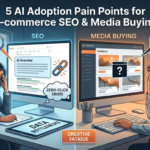Welcome to the Wolves Den, your hub for this week’s digital marketing news. Yes, we’ll discuss hot topics like Twitter’s lawsuit against Elon Musk’s commitment issues, but we’ll also deliver the latest trends in our field, from PPC to SEO to the ever-changing algorithm on your favorite social media platform.
What can we infer from this week’s industry news as it relates to our work as digital marketers? Let’s dive in.
Tweet Fight! Ongoing Developments in the Musk-Twitter Saga
Nothing like a good ol’-fashioned feud between the richest man on Earth and a powerful social media company to shake up the digital landscape this summer. More than just an everyday $44 billion business deal gone sour, Twitter’s lawsuit against Elon Musk could have a ripple effect that extends beyond Tesla stock.
“Musk refuses to honor his obligations to Twitter and its stockholders because the deal he signed no longer serves his personal interests,” Twitter’s lawyers allege. [NPR]
More importantly to the creative writer publishing this weekly news update, the conflict is, of course, also a metaphor. Marketing is all about contracts, about making promises to your audience. The backbone of commerce itself is only stable when all parties follow through.
Does the Musk-Twitter saga impact digital marketing at all beyond serving as a cautionary tale? Probably, but it’s hard to predict the specifics at this point. One thing we know for certain, as described by Vanity Fair: “This is going to be a long, drawn-out, very public, very comical, very annoying fight.”
Tech Executives Can’t Decide if Having Employees Is Good or Bad
Across the board of tech, gaming, social media, and more, layoffs and a reduction in hiring are the latest trends among decision makers, and have been for months. Just in the past two weeks, Meta, Apple, Google, and Microsoft are among the companies whose leaked memos and official announcements argue that fewer employees will equal better outcomes for all. It’s tricky to pinpoint the true culprit behind this line of thinking. It could be panic over a potential recession, asset-covering following lost investments related to the crypto crash, or simply poor management.
The sole outlier, it appears, is Amazon, whose high turnover rate may be outgrowing the available labor pool in the United States. Instead of reducing hiring, the mega corporation is reportedly shifting its focus to increasing its workforce overseas, starting with 4,000 new jobs in the United Kingdom.
The value of employee retention appears to have plummeted in the minds of corporate shareholders, deepening the divide between the goals of execs and the morale of their workers. What happens next? Is there a chance the reinvigorated labor movement makes waves in the tech industry? Only time (and growing frustration) will tell.
The Top 3 Google Updates You Need to Know This Week
Sometimes new Google features fly under the radar, but even small changes to the search engine and ad platform can have a significant effect on how marketers operate. This week, there were three stories to note.
- New Performance Max Campaign Features: Google announced four new features to help advertisers have more control over and insights into their Google Ads Performance Max campaigns. Some of these new capabilities include seasonality adjustments, optimization scores, data exclusions, and new data to diagnose issues.
- Google My Business App No Longer Available: After rebranding the service to Google Business Profile, it was only a matter of time for the Google My Business app to close up shop. Now, businesses are directed to Google Maps and Search to update their info and connect with customers.
- Known Issues Affecting Ads & Analytics Reporting: Google confirmed this week that there is a bug affecting “a large number” of accounts using Google Ads products and Google Analytics. At this time, there is no word on when the issue will be fixed.
Facebook and TikTok Aim to Attract Small Business Users
Two headlines have hit the presses for small businesses wanting to grow their social media following.
First, Facebook is finally embracing what is known as the finsta, or “fake Instagram” account. With the new test rolled out to some users, up to four additional profiles can now be made for every main account. The idea is for individuals to use the profiles for their separate social circles, but the feature also has the potential to offer small businesses the ability to target different markets or publish different kinds of content to different channels. Will the move be enough for Facebook to keep users on the platform amid its various competitors?
Second, on the topic of competitors, TikTok has also launched a program targeting small businesses, and that is its new Follow Me educational course. The free, six-week email campaign will provide readers with a comprehensive guide to getting started making TikTok content successfully. Given that the TikTok editor can have a steep learning curve, this course spells good news for those wanting to further their influence through the wide reach of the short-form video platform.
The End of an Episode: Is Personal Data on Its Way Out of Digital Advertising?
Binge-watchers, it’s hard to stomach, but it’s true: Netflix is moving forward on its ad-backed streaming service, and they have partnered with Microsoft instead of Google to power the advertising. Their reasons for doing so are interesting, as they pledge to “minimize the intrusions into personal privacy that often accompany digital ads.”
Google ad sales are heavily dependent on personal user data, and this move and explicit call-out from Netflix is poignant and could shift the way consumers view and feel about their information being used to target them. However, Netflix’s CEO used to serve on the Microsoft board of directors, so maybe the whole discussion of personal data is just a coverup for your standard dose of favoritism.
Tune in next week for the latest news in digital marketing from the Wolves Den.








